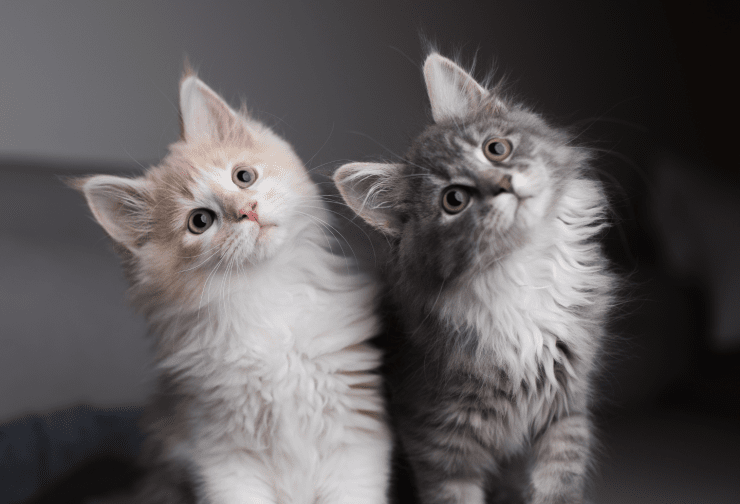First month flea FREE, just £2.99 P&P
Speedy same day dispatch*
7.5+ million flea & worm packs sold
Tailored to your pet
Blog Menu
Blog Home
Itch News
Itch Insights
Devon

Devon
SQP Pet Wellness Warrior, professionally trained in Veterinary Medicines advice
Mostly writes about
Subscription support and veterinary medicine advice
Profile
Devon is an SQP here at Itch, professionally trained in Veterinary Medicines Advice by the VMD (The Veterinary Medicines Directorate) which means we all bow to her superior expert knowledge. She’s got the certificate with her name on it! Devon can use her specialist knowledge to ensure that when an Itch subscriber sees a flea, we Whippets backside! Calm, cool and collected, Devon enjoys really getting to know Itch customers and their pets, so that she can problem solve across a range of pet parenting issues, from booty scooting worm infestations to tricky tablet takers! Devon’s years of experience plus her professional training make her perfectly placed to offer advice across a range of pet issues including preventative health, active ingredients and behavioural issues.
Latest Articles
Worming
Prevention, Prevention

Is my dog more at risk of fleas and worms at the kennels?
As much as we want to take our furballs everywhere with us, sometimes it's not always an option. For most of us, pet accommodation comes in handy for when we need our pooches to be looked after whilst we are on holiday - after all in the UK, we spend a whopping £3 billion on using kennels or catteries every year*. But as you hop on a plane, what happens if fleas hop on your pet?
Flea
Identification

Are Fleas And Ticks The Same Thing?
If you've ever found yourself wondering whether fleas and ticks are one and the same, you're not alone. These tiny creatures often cause confusion due to their similar size and the discomfort they bring to our furry friends. Fear not, we’ll explain what makes fleas and ticks unique, how to distinguish between them, and most importantly, how to effectively treat and prevent these persistent pests.
Flea
Prevention

Fleas Aren’t Just For Summer - Why Winter Flea Treatment Is Key
This article dives into what happens to fleas in winter, dispel the myth that pets are safe from flea invasions during the colder months, delve into the cosy relationship between fleas and warm houses in winter, and, most importantly, discuss why maintaining flea treatment in winter is an absolute must. So, grab a cuppa, snuggle up with your furry friend, and let's unravel the secrets of winter flea prevention.
Flea
Treatment

How To Kill Fleas For Good
The persistent presence of fleas can have a knack for making our pets' lives itchy and uncomfortable. But fear not! This article explores the ins and outs of these persistent pests and unveils the secrets to killing fleas for good.
Itch Insights
Pet Wellbeing

How Often Should you Wash your Dog?
You love your dog - that's a given - but at times, they’re probably the most gross creature you’ve ever met. From rolling around in poop in the woods to burying dead seagull carcasses at the beach, they don’t do themselves any favours in the smell department!
In these cases it’s smart to stick them straight in the bath as soon as you get home. But how do you know when to give them a bath the rest of the time?
Itch Insights
Pet Wellbeing

How to Keep Your Cat Cool in the Summer
Just like us humans, many cats enjoy spells of warmer weather! However, they can also overheat and risk developing complications such as heat stroke. Cats more at risk of illness as a result of the mercury rising include very old or young cats, cats with a dense, fluffy coat and those with pre-existing medical conditions.
Felines with flat faces (you might hear these being referred to as brachycephalic breeds) like Persian cats and Scottish folds also have a harder time regulating their temperatures because of their shorter nasal passages.
Fortunately, there are plenty of things you can do as a cat parent to keep your puss comfortable and extra chill in warm weather!
Flea
Identification

Fleas Or Mites - What Is Causing My Dog’s Itchy Ears?
If you've noticed your furry friend scratching at their ears incessantly, you might be wondering what's causing all that discomfort. Itchy ears can be a sign of various issues, but two common culprits are fleas and mites. In this blog post, we'll delve into the differences between fleas and mites, how they affect our dogs' ears, and most importantly, how to alleviate your pup's itchiness and prevent future infestations. Let's get started!
Flea
Identification

What Are The Black Specs In My Pet's Fur?
Have you noticed some black specs in your pet’s fur, do they look a little bit like specs of dirt? We’ll tell you all you need to know here!











